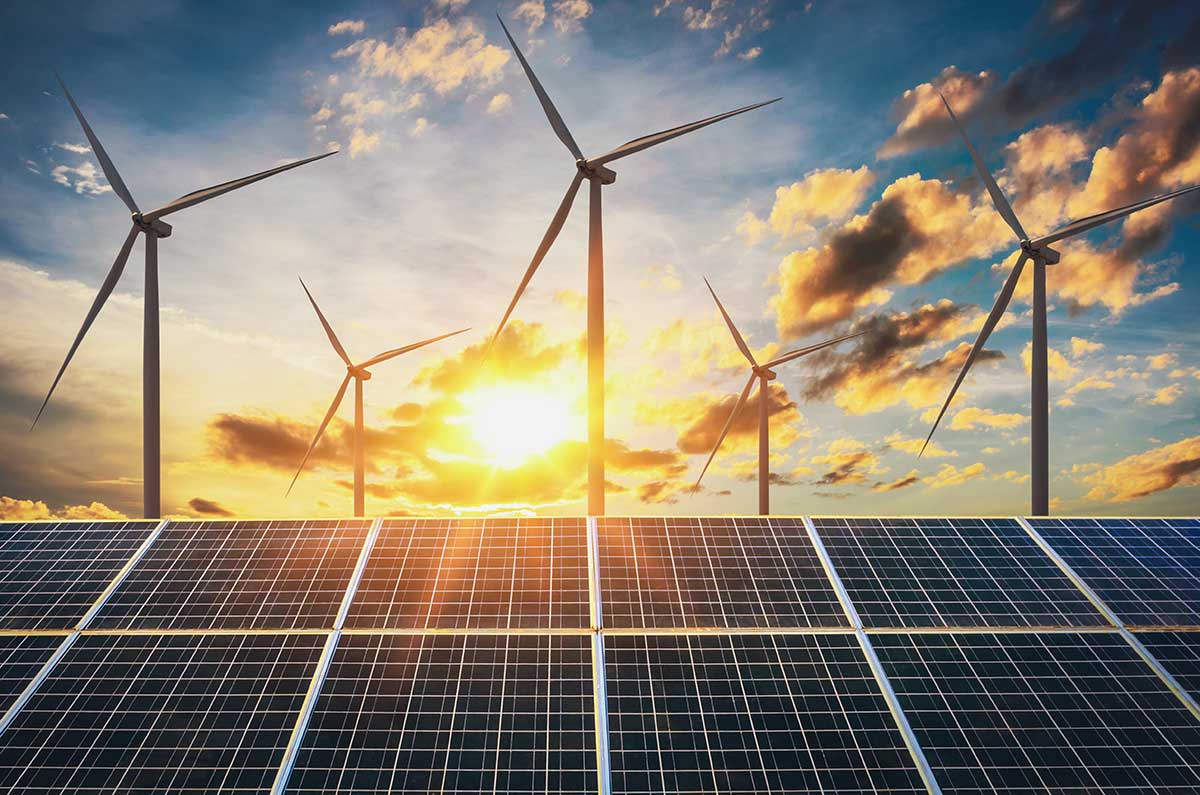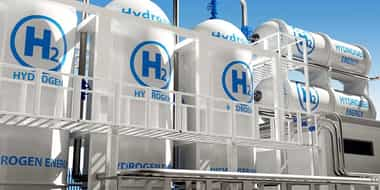
Apr 30, 2025
Blog Energy & Sustainability Powering Progress-The Rise of Renewable Energy in the GCC
"With policies, projects, and partnerships aligned, the GCC’s renewable energy sector is no longer emerging — it’s exploding."
The Gulf Cooperation Council (GCC) region is undergoing a historic energy transition as governments work to diversify their economies and reduce their dependence on fossil fuels. Facing the realities of climate change, international decarbonization commitments, and the need for long-term economic resilience, GCC countries are investing heavily in renewable energy. Solar, wind, and emerging technologies like green hydrogen are at the forefront of national strategies aimed at building cleaner, more sustainable economies.#RenewableEnergy
Flagship initiatives such as Saudi Arabia’s Vision 2030, the UAE’s Net Zero 2050 Strategy, Qatar’s National Vision 2030, and Oman’s Vision 2040 prioritize renewable energy development. These national agendas commit to increasing renewable capacity and position the GCC as a future global leader in clean energy production, export, and innovation. #Vision2030 #NetZero
Across the GCC, renewable energy projects are gaining unprecedented momentum. The UAE leads the region with projects like the Mohammed bin Rashid Al Maktoum Solar Park in Dubai, one of the largest solar installations globally, and Abu Dhabi’s Noor photovoltaic plant. The country’s ambitious goal is to generate 50% of its energy mix from clean sources by 2050.#EnergyTransition
Saudi Arabia’s Vision 2030 outlines plans to install 58.7 GW of renewable energy capacity by 2030, including mega-projects such as the NEOM Green Hydrogen Project, set to become one of the world's largest green hydrogen facilities. ACWA Power and Saudi Aramco are leading the renewable push, backed by significant government funding.#EnergyInvestment
Qatar, Oman, Bahrain, and Kuwait are steadily scaling up their solar and wind energy portfolios. Qatar’s 800 MW Al Kharsaah Solar PV project and Oman’s 500 MW Ibri II Solar Plant exemplify the region’s commitment to sustainable growth. Bahrain’s National Renewable Energy Action Plan targets 5% renewables in its electricity mix by 2025, while Kuwait plans to reach 15% renewable energy by 2030.#SolarEnergy
Strategic partnerships with international developers, government tenders, public-private partnerships, and the creation of specialized renewable energy zones are further accelerating deployment across the region.
The GCC’s renewable energy transition creates vast investment opportunities across multiple clean energy value chain segments. To attract investors and developers, governments offer incentives such as land grants, long-term power purchase agreements (PPAs), and favorable financing structures.
Emerging opportunity areas include:
As these opportunities unfold, the region becomes a magnet for technology providers, EPC (engineering, procurement, construction) firms, venture capitalists, and clean energy entrepreneurs.
While progress is robust, the renewable energy sector in the GCC still faces challenges.
One major hurdle is regulatory fragmentation—policies, licensing procedures, and grid codes vary significantly between countries, creating complexity for cross-border energy trading and regional project development. Harmonizing regulations across the GCC would greatly enhance market efficiency and investment attractiveness.#GreenEconomy
Another challenge is ensuring the bankability of projects in emerging renewable sectors like green hydrogen, where technology and market risks remain high. Governments are beginning to address these gaps through sovereign guarantees, pilot projects, and collaboration with global institutions.
Grid integration remains a technical challenge as well. Upgrading infrastructure to accommodate large-scale variable renewable energy sources is crucial, and countries are actively investing in smart grid modernization and interconnection projects.
Public awareness and skill development are other areas that need attention. As the renewable sector grows, workforce training programs, university partnerships, and STEM education initiatives are essential to cultivating local expertise.
The GCC is strategically positioned to emerge as a global clean energy powerhouse.
With abundant solar and wind resources, world-class project financing capabilities, and proactive government policies, the region is poised to lead in renewable energy production, green hydrogen exports, and sustainable technology innovation. #GreenHydrogen
Cutting-edge advancements expected to shape the GCC renewable energy market include:
Saudi Arabia and the UAE are likely to dominate the market in terms of scale, while Oman and Qatar will carve niches in green hydrogen and solar innovation. Bahrain and Kuwait are expected to leverage public-private models to accelerate their renewable energy goals.
The GCC's renewable energy sector is set for exponential growth with forward-looking visions, robust policy frameworks, and growing international collaborations. For investors, technology providers, and innovators, early engagement in this dynamic market offers the chance to participate in a transformative energy revolution. The path to a cleaner, greener future is being built now—those who move quickly will lead the energy markets of tomorrow.
Discover more in our comprehensive market research study, "Renewable Energy Regional Analysis: Middle East and North Africa." Explore detailed insights here:
Kunal R. Nagpure is a seasoned market research consultant with over a decade of proven expertise in delivering strategic insights across diverse global markets. At BCC Research, Kunal has earned recognition as a subject matter expert known for transforming complex data into clear, actionable strategies that drive growth and innovation.

Electrical switches—devices that control the flow of electricity—are the backbon...

As the world accelerates toward net-zero emissions, hydrogen, and ammonia have e...

Hydrogen technology is widely used across industries like glass, fertilizer, met...

We are your trusted research partner, providing actionable insights and custom consulting across life sciences, advanced materials, and technology. Allow BCC Research to nurture your smartest business decisions today, tomorrow, and beyond.
Contact UsBCC Research provides objective, unbiased measurement and assessment of market opportunities with detailed market research reports. Our experienced industry analysts assess growth opportunities, market sizing, technologies, applications, supply chains and companies with the singular goal of helping you make informed business decisions, free of noise and hype.